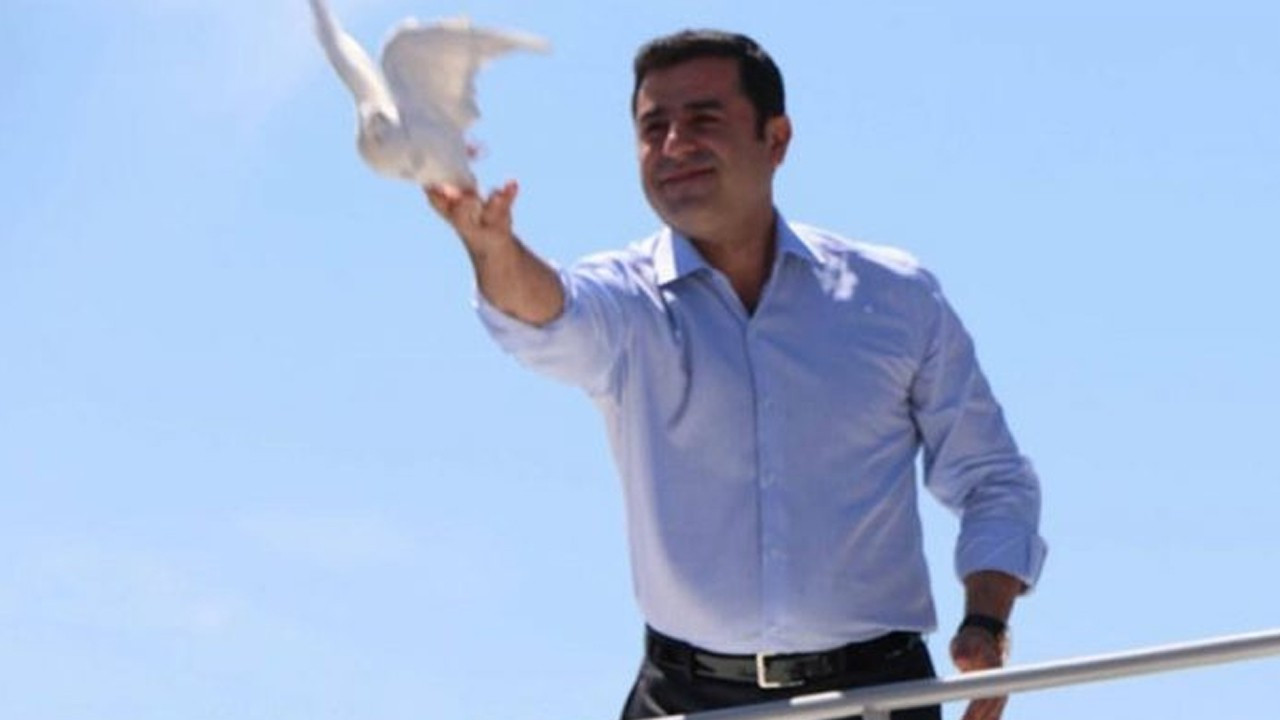'Ah Asuman!' and Demirtaş’s beguiling stories
Do you remember Selahattin Demirtaş? If not for projects like “Ah Asuman!”, director Ümit Kıvanç’s short film adaptation of one of Demirtaş’s wittiest short stories, we truly might be in danger of forgetting him. The story of the gullible young lawyer and the crafty old bus driver reminds us Demirtaş’s humane and humorous vision of the world.
A young lawyer is on the night bus to Diyarbakır. He has just graduated from law school in Ankara and is returning home. It’s that strange, dreamy hour in between sleep and wakefulness that only those who have spent long hours on cross-country busses will understand.
Our lawyer awakens and notices that the bus is hardly moving, but there’s no traffic. He walks up to the bus driver to ask what is happening. He is given a cup of coffee and told to sit down. The charming middle-aged driver launches into a yarn with his thick southeastern accent about the love of his life, a nightclub singer and model whose picture happens to be plastered on the truck in front of them as an advertisement. The bus driver is still burning with love and has to follow behind this truck whenever he sees it, even if it means slowing down the journey. For our lawyer, the story is too far-fetched to believe but too touching not to believe.
Do you remember Selahattin Demirtaş? If not for projects like “Ah Asuman!”, director Ümit Kıvanç’s short film adaptation of one of Demirtaş’s wittiest short stories, we truly might be in danger of forgetting him. The story of the gullible young lawyer and the crafty old bus driver reminds us Demirtaş’s humane and humorous vision of the world.
Demirtaş, a politician with a larger-than-life presence, has been imprisoned since 2016. In the more than five years that he has been locked up, the most we hear from him is a Twitter thread with book recommendations or some comments in an interview with the press. The former co-chair of the Peoples’ Democratic Party (HDP) was once famous for the phrase “We will not let you be president!” And he nearly kept his promise in the 2014 presidential elections. In return, he has become (in his own words) a “political hostage.”
Out of sight, out of mind. Or as the Turkish proverb has it, “the one distant from the eye is also distant from the heart.” No one wants it to be this way, but the bulldozer of history keeps rolling on with pitiless speed while even beloved prisoners are trapped standing in place.
That said, Demirtaş has been more successful than most in keeping himself in the public’s heart. In 2018, he ran his presidential campaign from prison. But the previous year, he did something even more radical: Demirtaş became a writer.
“Seher,” his first collection of short stories, sold more than 200,000 copies in Turkey. It was translated into the world’s major languages, including English. Actress Sarah Jessica Parker (of Sex and the City fame) was even photographed holding the book in the streets of New York. “Dawn,” it turned out, was published in Parker’s literary imprint for the publisher Hogarth. After that book, Demirtaş went on to write a novel as well as another collection of short stories. These books kept him in the public imagination at a time when doing politics had become basically impossible.
Three years after Turkey ruled to keep detaining Demirtaş despite a European Court of Human Rights ruling that he should be released, it really began to seem like he might never re-enter our public life. That is why the short film adaptation of “Ah Asuman!” has come as such a fresh breath of air.
“Ah Asuman!” was created by a highly political team and so one would expect it to be a highly political short film. It was directed by Ümit Kıvanç: writer, documentary filmmaker, and journalist (at our sister publication Gazete Duvar). The screenplay was written by the great novelist and writer Gaye Boralıoğlu. It was produced by Çiğdem Mater, a filmmaker accused of “inciting the Gezi Park riots” along with Osman Kavala and others in 2018. The film was actually first shown at film festivals in 2019, but it was made available online this Sept. 1 for World Peace Day. You can find it with subtitles on Ümit Kıvanç’s Vimeo page.
The story, of course, comes from Demirtaş’s “Seher.” And if you have read the story, you will know that it is not really about politics at all. And that’s the beauty of it. Instead of trying to beat us over the head with a message, Kıvanç, Boralıoğlu, and Mater give us a warm, witty 15-minute respite from the ceaseless political headlines that make Turkey such a stressful place to love.
The short film “Ah Asuman!” masterfully brings us into a particular mood. It’s that dream-state between sleeping and wakefulness that I mentioned. As the young lawyer (played by Halil Babür) wakes up and wonders what is happening with the traffic, the love story told by the beguiling, pot-bellied bus driver (Settar Tanrıöğen) brings him even further into this dreamy state where true can be false and false can be true. The driver tells him that the blond beauty whose image is plastered onto the truck in front of them is his one-time lover, a pavyon singer named Asuman. He met her at a seedy nightclub in Istanbul. Eventually, he abandons his wife and children and convinces Asuman to come to Diyarbakır, where he sets her up in an apartment and allows her to “leave behind that life.”
At this point, the young lawyer has trouble believing the story. “This is like something out of an old Turkish film,” he says. Meanwhile, the film cuts to the other passengers. A headscarfed woman tentatively opens her eyes only to return to slumber. Young lovers sitting side-by-side whisper into each other’s ears. A man with scruffy hair and glasses turns the pages of a book, a sound that rings out in the silence of the midnight bus journey.
The bus driver Fahri goes on with the story. One day he goes home to Diyarbakır after another bus journey only to find that Asuman has left, as he puts it, “the butterfly had flown off.” Fahri gathers up whatever strength he has left, buys a bouquet, and returns to his “old woman,” but she hits him over the head with the flower vase and throws him back out.
By this time, the lawyer is deeply engrossed in the tragic tale. It is only then that the bus driver admits that the whole thing was a ruse. The bus broke down while the lawyer was sleeping and the truck in front of them is just toeing them to the next station with a rope.
Does the story have a moral? There is one brief scene at the beginning where the lawyer stands with the bus driver outside of the gates of a prison as the latter’s son is released. And so we are to understand that the upstart lawyer and raconteur bus driver eventually become friends.
But what the film really shows us is that telling stories matters, even if they’re tall tales, even if they’re false. And it’s thanks to Demirtaş’s many stories that we are still talking about him.


 Selahattin Demirtaş granted prominent German human rights awardHuman Rights
Selahattin Demirtaş granted prominent German human rights awardHuman Rights Davutoğlu must reveal the secrets of 2015World
Davutoğlu must reveal the secrets of 2015World